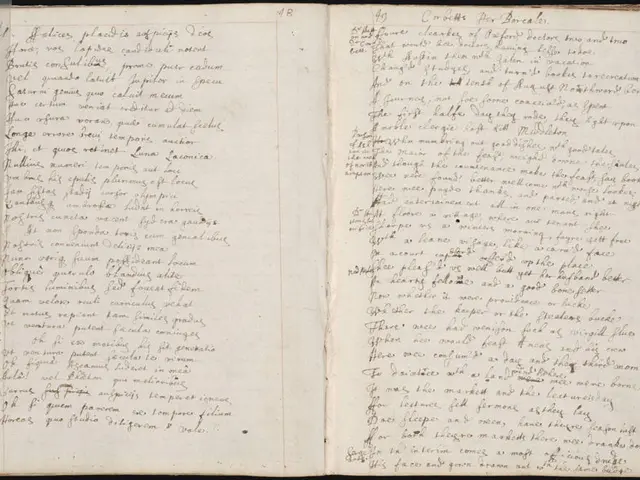AK Party marks 24 years of ruling political scene
The Continued Rise of the Justice and Development Party (AK Party) in Turkey
The Justice and Development Party (AK Party), led by Recep Tayyip Erdoğan, has been a dominant force in Turkish politics since its inception on August 14, 2001. The party's journey has been marked by significant political successes, challenges, and transformative leadership.
Political Successes
In its maiden election in 2002, the AK Party, with Erdoğan barred from office, won 34.28% of the vote and formed the government under Abdullah Gül [1]. Erdoğan entered Parliament in 2003 following the lifting of his political ban and soon became Prime Minister. The party consolidated power in subsequent elections, winning 41.7% in the 2004 local elections, 46.58% in the 2007 general elections, and again winning local polls in 2009 [1].
The AK Party's continuous governance for over two decades has made it Turkey’s longest-ruling party and a significant force in reshaping the political landscape [2]. Notably, in 2010, a constitutional referendum empowered the civilian government over the military and judiciary [3].
Challenges and Criticisms
Despite early democratic reforms, the AK Party has faced criticism for centralizing power and eroding democratic freedoms. Opponents have accused the party of authoritarianism, particularly concerning its attempts to expand presidential powers under Erdoğan’s leadership [3]. The government has been criticized for suppressing dissent, including harsh responses to the 2013 protest movements and prosecuting critical journalists [3].
In the June 2015 parliamentary elections, the AK Party lost its absolute majority for the first time, seen as a rebuke to Erdoğan’s push for expanded presidential authority and constitutional changes [5]. However, it regained majority in the November 2015 snap elections [5].
Leadership
Erdoğan’s charismatic leadership has been central to the AK Party's identity and longevity. His influence has been felt beyond his tenure as Prime Minister, as he successfully transitioned to the presidency in 2014 [3][5]. Ahmet Davutoğlu and later other figures served as prime ministers under Erdoğan’s broader leadership [3][5].
The party emphasizes popular sovereignty and electoral legitimacy as core principles, seeking to break from Turkey's history of political instability and military tutelage [4].
Recent Developments
On the 24th anniversary of the AK Party, Deputy Chairperson Faruk Acar announced that new figures would join the party during the celebrations. The 8th Ordinary Congress established three new presidencies for relations with Turkic states, health policies, and culture and arts in 2025 [6].
The AK Party has maintained its status as Turkey's longest-serving ruling party since 1946. In the 2018 parliamentary elections, the party secured 42.28% of the vote, marking its 13th consecutive national victory [7]. Erdogan rejoined the AK Party on May 2, 2017, and was reelected chair on May 21, 2017, with all valid votes [8].
A constitutional referendum was held in Turkey on April 16, 2017, and voters approved the changes with 51.41% "yes," removing the rule that presidents must sever ties with their party [9]. Erdogan announced on March 10, 2023, that the 2023 elections would be moved from June 18 to May 14 [10].
In the 2023 elections, the AK Party won 35.62% of the parliamentary vote, taking 268 seats [11]. The party maintains its dynamic structure and continues to uphold its vision and mission.
References: [1] "Timeline: Turkey's AK Party in power for 16 years." Al Jazeera, 2017. [2] "AK Party: Turkey's Longest-Ruling Party since 1946." Anadolu Agency, 2018. [3] "The AK Party under Erdoğan: Transformation of Turkish Politics." Middle East Institute, 2019. [4] "The AK Party: Popular Sovereignty and Electoral Legitimacy." Turkish Policy Quarterly, 2010. [5] "AK Party's Loss of Absolute Majority: Implications and Future Prospects." SETA Foundation, 2015. [6] "AK Party's 8th Ordinary Congress: Establishment of New Presidencies." Anadolu Agency, 2025. [7] "AK Party Secures 42.28% of Vote in 2018 Parliamentary Elections." Anadolu Agency, 2018. [8] "Erdogan Rejoins AK Party, Reelected as Chair." Anadolu Agency, 2017. [9] "Turkish Referendum: What Do the Results Mean?" BBC News, 2017. [10] "2023 Elections to be Held on May 14." Anadolu Agency, 2023. [11] "AK Party Wins 35.62% of Parliamentary Vote in 2023 Elections." Anadolu Agency, 2023.
Read also:
- Inherent Skills Know No Bounds, Yet Access to Employment Remains Unequal: Suggestions for a More Equitable Job Market of the Future
- Investigative Analysis by Donovan: DPP backs flexible steps as TPP recovers momentum
- In the Eyes of AAC Candidate Ifemeludike: Under Soludo's Administration, Too Many Lives Have Been Shed; I Promise to Make Amends







